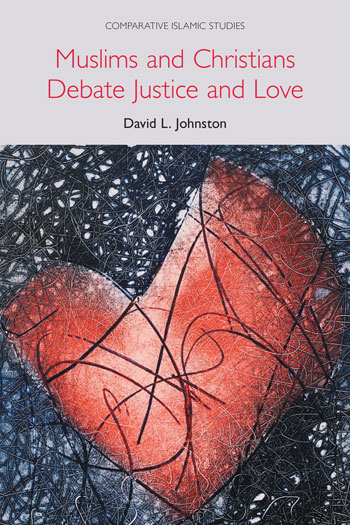Muslims and Christians Debate Justice and Love
Muslims and Christians address their common fundamental commitment to justice and love - even if not in total agreement on the details, what unites is more important than what divides, so how can we both get it across to our constituencies?
 Muslims and Christians Debate Justice and Love
Muslims and Christians Debate Justice and Love
By David L Johnston
Equinox
ISBN 978 178179 935 2
Reviewer: Alec Gilmore
When Rowan Williams suggested that Shari’a Law was ‘just around the corner in the UK’ (or some such phrase) he was vilified in the popular press and received more than a flea in his ear from cohorts of their readers. But how many of them were aware that a recent case study in Pakistan demonstrated how justice is one of the principle objectives of Shari’a Law and that Islam played a significant role in the finer points of the Universal Declaration of Human Rights 1946-49? Or that the Quran has more than 300 references to justice, mostly to ensure that others receive their due, while ensuring harmony in societal relationships, holding the balance between human rights for all, with due deference to minorities and where to draw the line between blasphemy, heresy and apostasy? Apparently also Muslims are more likely to discuss these matters than Christians?
This is but one of seven chapters as Muslims and Christians address their common fundamental commitment to Justice and Love. Justice (in this context) is primary justice, not distributive, retributive or procedural, but closely akin to human rights, focusing not on the minutiae of law and order but on the dignity and sufferings of the people, all people, with a recognition that we are God’s Trustees, all topped off with a sharp reminder that too often our silence contributes to their plight. Practical and down-to-earth, each chapter begins with a Case Study of injustice that needs to be put right.
First up is the USA, with more African-American adults under correctional control (prison, probation or parole) today than were enslaved in 1850, taking us beyond the familiar ‘Racial Justice and Slavery’ agenda to include ‘Structural Violence’, now redefined as ‘the modern version of slavery’.
Israel/Palestine unpacks some marginal currents in classical Islamic law and Egypt reports how, after 50 years in exile, and within three weeks of the toppling of Mubarak in a revolutionary environment, the world’s most popular 85 year old Sunni cleric flew in to lead Friday prayers in Tahrir Square, addressing both Muslims and Christians, and alongside the Muslim majority firmly asserting the rights of all citizens; while Nigeria portrays a kinship between Christians and Muslims as ‘People of the Book’, concluding with some Christian perspectives of Justice and Love.
Overall, it is refreshing to find items which we regularly regard as fundamentally our agenda coming from another quarter, not in conflict but as an indication of a shared commitment. On Justice and Love, at least, we are on the same side. Even if not in total agreement on the details, what unites is more important than what divides, so how can we both get it across to our constituencies?
This book could be a good starter but is hardly a walk in the park and will depend very much on committed specialists on both sides to channel it outside their immediate circles, after decanting it, a little at a time, for the rest of us.
Alec Gilmore is a Baptist minister
Baptist Times, 17/12/2020